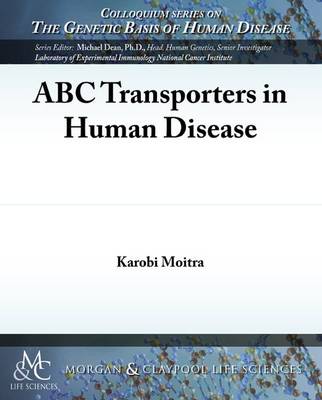The ATP-binding cassette (ABC) transporter genes are ubiquitous in the genomes of all vertebrates so far studied. The human ABC transporter superfamily contains 48 genes, subdivided into 7 subfamilies ranging from A to G (based on sequence homology of their nucleotide binding domains). The ABC proteins encoded by these genes are ATP-driven transmembrane pumps, some of which possess the capacity to efflux harmful toxic substances and therefore play a key role in xenobiotic defense. ABC proteins have been evolutionarily conserved from bacteria to humans and multiple gene duplication and deletion events in the ABC genes indicate that the process of gene evolution is still ongoing. Polymorphisms and variations in these genes are linked to variations in expression, function, drug disposition, and drug response. Single nucleotide polymorphisms (SNPs) in these genes could be markers of individual risk for adverse drug reactions or susceptibility to complex diseases. The pharmacogenetics of this unique family of transporters is still under study; however, in the context of human health, it is a well-known fact that variations in these transporters are the underlying cause for several human diseases including cystic fibrosis, Pseudoxanthoma elasticum (PXE), and X-linked adenoleukodystrophy (X-ALD).
- ISBN13 9781615043781
- Publish Date 30 April 2012
- Publish Status Active
- Publish Country US
- Imprint Morgan & Claypool Publishers
- Format Paperback
- Pages 84
- Language English
